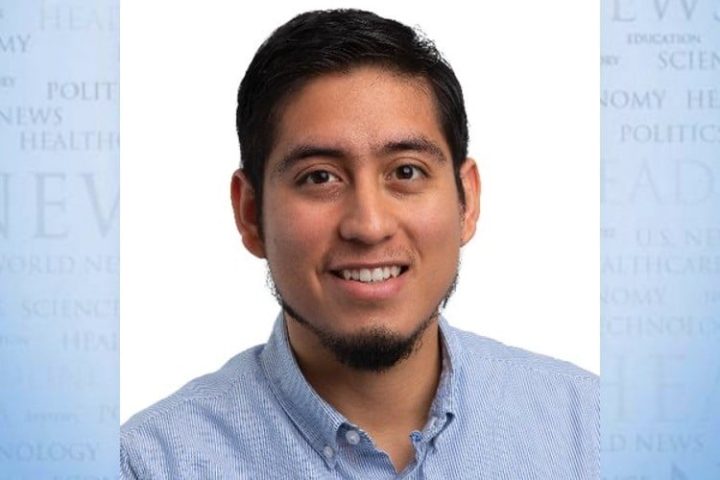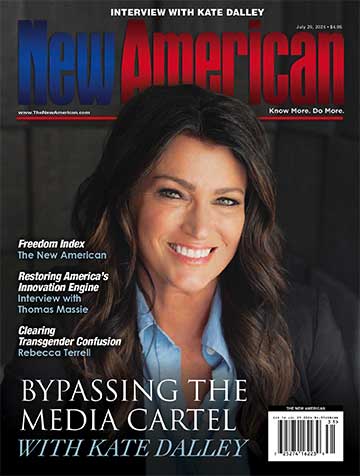
To say that 2024 is going to be a contentious election is an understatement.
Even before the indictments of President Donald Trump, the rivalry between the 45th president and Gov. Ron DeSantis of Florida made the Republican primary a contentious one. Now, with Trump facing 37 felony counts and the possibility of prison time, political divisions have soared to new heights.
According to a new Reuters/Ipsos poll, most Republicans think the federal charges against Trump, centered around his keeping of classified documents at his Mar-a-Lago residence in Palm Beach, are politically motivated.
“The polling,” Reuters reports, “which began on Friday, a day after Trump was indicted, found that 81% of self-identified Republicans said politics was driving the case, reflecting the deep polarization of the U.S. electorate.… The number of Republicans who believe the former president is being unfairly targeted vastly exceeds the 30-35% of Republican supporters who are estimated by political analysts to make up his core base.”
This creates a powerful dilemma in America. If Trump loses either the primary race or the general election, a vast swath of the electorate will believe his defeat was the doing of a politically motivated federal government, which is led by Trump’s Democratic rival, Joe Biden. Therefore, public trust in the legitimacy of the 2024 election results would take a huge hit.
And this would be in addition to the low confidence many right-leaning Americans already have in the nation’s elections due to suspicion of significant voter fraud in 2020.
If Trump is once again barred from the White House and nearly half of America once more believes he was “cheated” out of the presidency, this could foreseeably produce a crisis of division in which some states or even localities refuse to recognize the authority of the Democratic president.
The tensions resulting from controversial presidential elections during eras marked by sharp ideological contrasts are just the kind of dispute capable of causing a schism in the country. After all, it has happened before — the breaking point that led the Southern states to secede prior to the Civil War was the election of Republican Abraham Lincoln, whom Southerners feared would end slavery throughout the country.
We already see the groundwork for such a fissure in the recently popular rhetoric of “National Divorce,” by which many Americans mean they want, if not a legal separation of the states, at least much more autonomy at the state level without interference from the federal government.
The deep cultural impact of the Civil War, including the implication of harrowing bloodshed, would likely dissuade states from outright “seceding.” The ramifications of secession are far-reaching, and Americans today, including elected officials, would probably feel uncomfortable with the possibility of conflict stemming from declaring the formation of a separate country.
Rather, the most likely course is that states will draw lines, some supporting one claimant to the presidency while others support the other.
Such a situation would be a parallel to the famous episode in Christendom when a schism formed within the Catholic Church, with one pope seated in Rome and another ruling from Avignon in France.
The Western Schism arose from the Avignon Papacy, a period from 1309 to 1376 when a line of seven successive popes resided in Avignon instead of the Vatican. At that time, it was common for popes to settle outside of Rome for a while to travel and to escape the hot weather in Rome. In addition, Pope Clement V in 1309 established the papacy in Avignon as a way to distance himself from the power struggles of Rome’s aristocratic families, which were bleeding into the church.
During that time, France exerted considerable influence over the papacy. Notably, all of the pontiffs during the Avignon papacy were French.
Pope Gregory XI decided to return the papacy to Rome in 1377. He had planned to return to Avignon the next year, but died before he could. After his death, the cardinals elected Pope Urban VI, but his violent temper and reformist views made them regret their decision. The college of cardinals then elected Pope Clement VII, who established himself at Avignon.
This resulted in the “two popes” period marked by a pope in Rome and an “anti-pope” in Avignon. States such as France, Scotland, Naples, Castille, Aragon, Navarre, Sicily, and Savoy recognized the Avignon pope, while nations such as England, Flanders, Poland, and the Holy Roman Empire sided with the pope in Rome. This division in the church lasted until 1417, with the conclusion of several attempts at reconciliation.
Although many Republicans were outraged by the appearance of voter fraud in 2020, Trump did not have the institutional support in Congress or in state legislatures to mount a challenge.
However, in the intervening years, Republican voters have been electing representatives who agree with Trump’s claims of voter fraud. This means there is a greater possibility for a viable challenge in 2024 in the event Trump loses and voters suspect bad faith on the part of the federal government.
And the more the Biden administration pursues charges against Trump, the more suspicion of bad faith there is. In short, Democrats are sowing the seeds of a national crisis.




